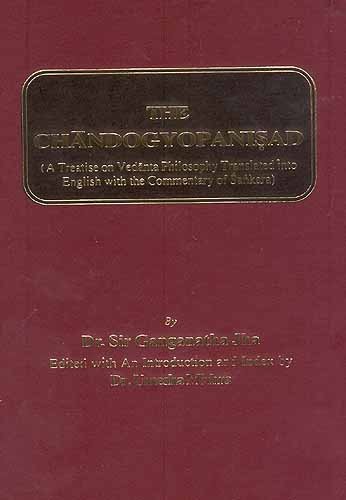Chandogya Upanishad (Shankara Bhashya)
by Ganganatha Jha | 1942 | 149,749 words | ISBN-10: 8170842840 | ISBN-13: 9788170842842
This is the English translation of the Chandogya Upanishad, an ancient philosophical text originally written in Sanksrit and dating to at least the 8th century BCE. Having eight chapters (adhyayas) and many sub-sections (khandas), this text is counted among the largest of it's kind. The Chandogya Upanishad, being connected to the Samaveda, represen...
Section 5.16 (sixteenth khaṇḍa) (two texts)
Upaniṣad text:
Then he said to Buḍila-Āśvatarāśvi—‘ O, descendant of Vyāghrapāda, what is that Self on which you meditate?’—‘Water, O Revered King’—he said.—‘This that you meditate upon as Self is that Vaiśvānara-Self which is ‘Wealth’; hence you are possessed of wealth and bodily strength.’—(1)
Commentary (Śaṅkara Bhāṣya):
He said to Buḍila-Āśvatarāśvi etc., etc.,—as before. This Vaiśvānara-Self is ‘Wealth’,—in the form of wealth; as from water, proceeds food, and from food, wealth. Hence you are possessed of wealth— wealthy—and of bodily strength,—the strength of the body being dependent upon food.—(I)
Upaniṣad text:
‘You eat food and see what is dear. One, who thus meditates upon this Vaiśvānara-Self eats food and sees what is dear; and there is Brahmic glory in his family. But this is only the bladder of the Self: and your bladder would have burst if you had not come to me.’—(2)
Commentary (Śaṅkara Bhāṣya):
But this is the Bladder of the Vaiśvānara-Self;—‘Bladder’ being the place where urine becomes collected,—your bladder would have burst—become torn—if you had not come to me’.—(2)
End of Section (16) of Discourse V
